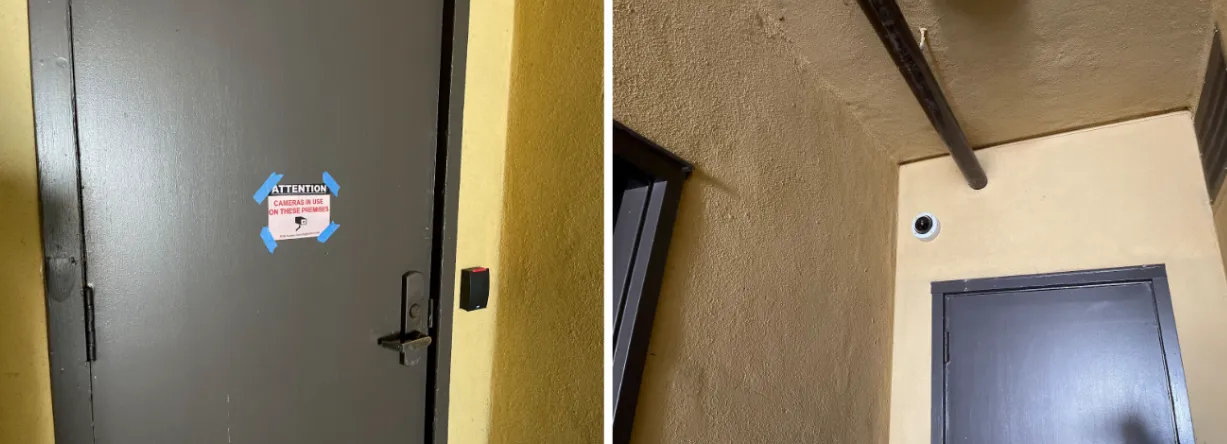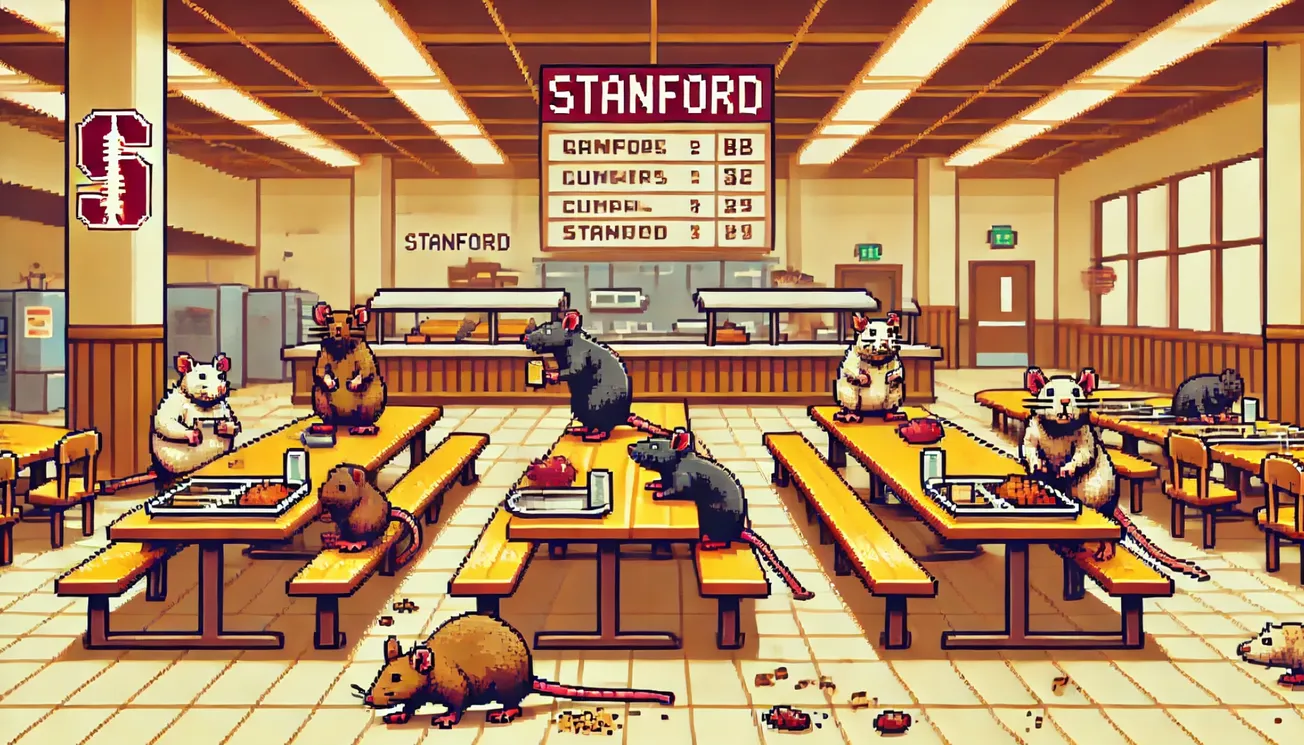Table of Contents
Safetyism—the ideal of safety being championed above all—has trojan-horsed its way into the core of undergraduate life at Stanford.
As students move into their dorms for the 2023-2024 school year, for some, scrutiny and surveillance already awaits. At four upperclassman houses near Lake Lag—Kappa Alpha, Enchanted Broccoli Forest, Jerry, and Narnia—there are dozens of new security cameras positioned outside the houses near the entrances, as well as signs warning students of these new cameras.
While using the label of safety to justify surveillance, these cameras are the newest weapon in the War on Fun. Like the closed door policy and administrative obstacles to parties that came before them, the cameras will create a chilling effect on undergraduate life at Stanford.
On April 21, 2022, Stanford announced that it would be installing security cameras starting that summer. The announcement states that “Cameras will be primarily at building entrances and in other areas where a security assessment has identified a risk to safety or property, for example, theft or trespassing. However, they will not be installed where there is an expectation of privacy, such as in living spaces, restrooms, dining areas, or residential lounges.”
The university’s statement listed Wilbur, Stern, Munger Graduate Residences, Roble, and other locations primarily on east campus as the initial installation sites. And these installations have been met with criticism from students and faculty alike.
But, there is a categorical difference between these residences and the residences newly burdened with security cameras: the latter are the social hubs of student life on campus.
While the same thing in essence goes down at, say, a frosh party in Stern vis a vis a rager at KA, the frosh party at Stern differs because (1) the party is indoors, thus outside the gaze of security cameras (2) it is smaller, often limited to a couple dozen frosh who will be carefully monitored and taken care of by RAs. On the other hand, KA, EBF, Jerry, and Narnia all host real parties (though some more than others), making them a prime target for the surveillance regime to extend its reach. KA and EBF are both especially known for hosting larger gatherings and parties.
Stanford administrators and spokespeople have droned about the necessity of keeping students safe, whether from bike theft, imposter students, or, more solemnly, sexual assault. But this is a flimsy excuse for what the university is really doing.
Security cameras affixed to front doors do not stop sexual assault, or even bike theft. Potential criminals will see the security cameras and commit their crimes elsewhere, not stop and think twice about what they’re doing. For the former, most sexual assaults happen in the confines of a dorm room, not wide out in the open for others to see. And, security cameras couldn't fix the Title IV office which has only expelled a handful of students for sexual assault or rape in Stanford’s history.
Just as sexual assault will continue behind closed doors, security cameras will push drinking into even more hidden corners, not stop students from drinking. The most recent example of this misguided administrative campaign, the closed door policy instituted at the beginning of the 2021-22 academic year, led to record high ‘transports’ to the hospital for alcohol poisoning. Worse than not preventing the alleged transgressions, they will lead to more students to slam vodka shots in their rooms rather than be caught drinking on camera.
The statement provided by the university delineates the importance of an “expectation of privacy,” but fails to say why surveillance cameras being installed on student residences do not violate that expectation. On principle, tracking who goes in and out of a party is no less intrusive than spying on students eating meals in a dining hall. And, to state the obvious, privacy shouldn’t be infringed for some greater ideal of safety.
But we mustn't be surprised. This infringement on privacy is the next logical step after the honor code’s near-elimination last year. The university—now the nanny university—needs to oversee students take their exams and live their social lives. The university can't trust students to do either.
Safetyism is at fault for many problems young people face, from indecision to the death of dating to the inability to take risks. By watching their every move, Stanford will paralyze its students further. We shouldn’t let the administration continue to strike us at our knees.









